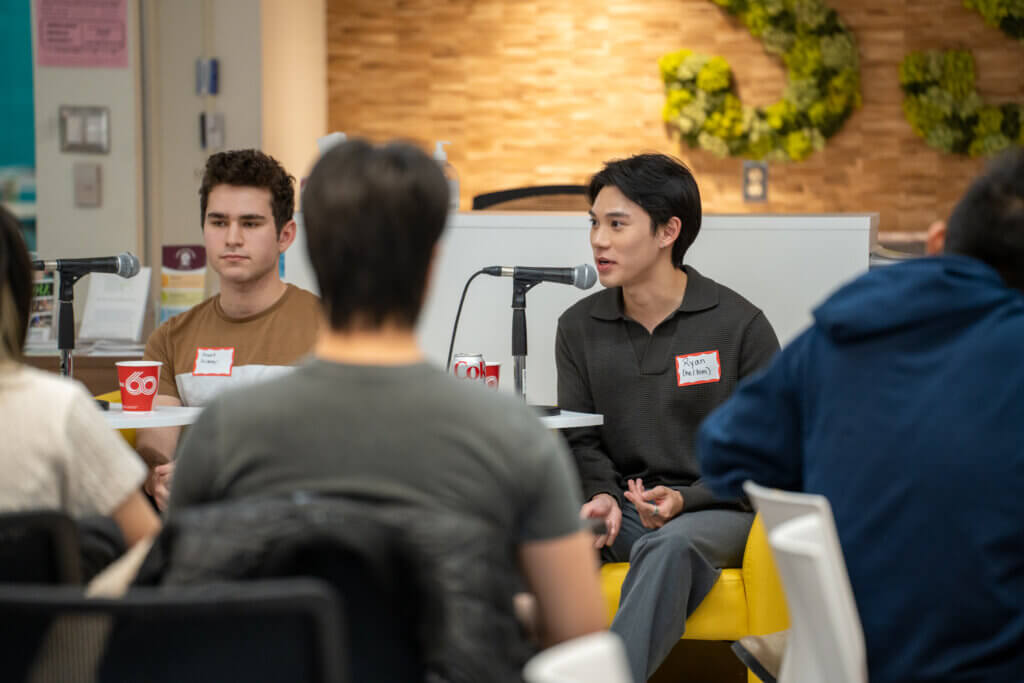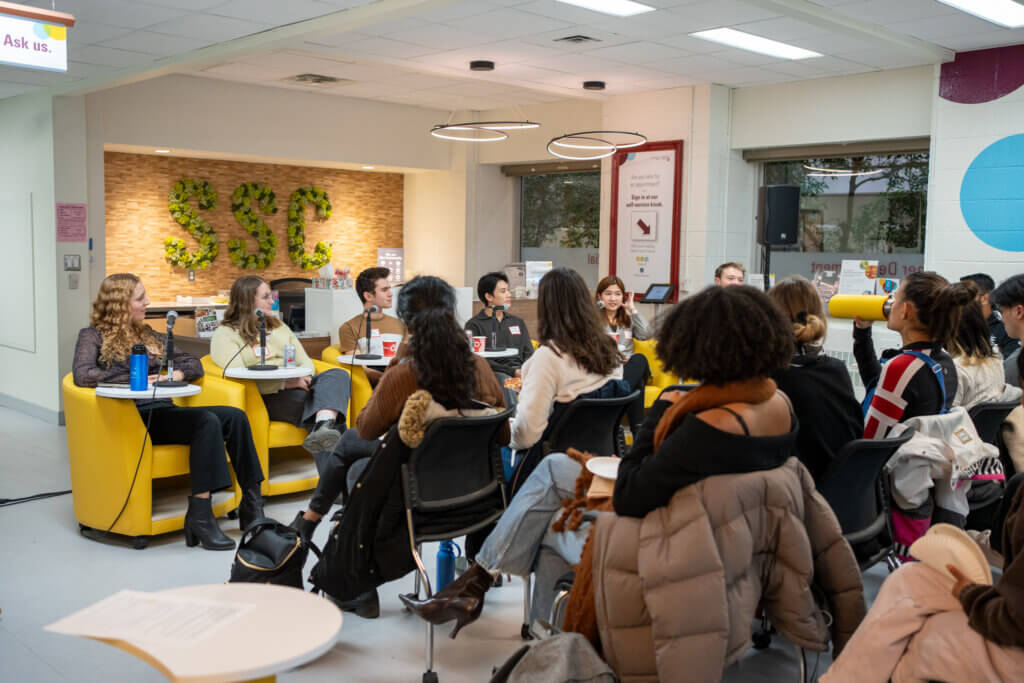By: Danielle Collado
Last Wednesday, we hosted the Summer Job Peer Panel. Career counsellor, Tanya Kett, shares that this is a popular event each year, as students begin to navigate the job search process and secure their summer plans.

Here are three main takeaways from the conversation.
1. Make yourself known
Aaron: “Being willing to take the time to get to know the people that you’ll work with is a huge value add to both parties.”
Amanda: “Something that has always worked for me is really narrowing down what I want to do and being very clear on that…[set] goals within yourself, so that when you do reach out to someone, you’re not creating work for them. If you’re asking them questions and not providing any value at all, you’re not going to get an answer.” Amanda adds, “professors are human too, employers are human, they want to be able to establish a connection.”
Linh was not as comfortable reaching out to professors when first beginning to network, so they reached out to McMaster alumni instead. Now, Linh says, “I really believe in the power of networking and making connections when looking for jobs, because that’s what makes you stand out as an applicant.”
Dina: “[Your TAs are] good people to chat with, especially if you want [to connect with] people closer in age and experience, and you’re a bit intimidated by profs.”
2. Don’t discount your experience
Ryan did not hear back from any of the roles they had applied for, except for their current role as a Communications Assistant. “[I’d] done something in my past that was not necessarily on my previous resumes, but I put it on this one, and I suppose it stuck out. So, I got chosen for an interview. Every experience you have counts. [For the Communications Assistant Role] I helped my friend with his social media, and I put that on my resume.”

Howard broadened their research position search by considering their transferrable skills. “I’m in physics, but I applied for mechanical and biomedical engineering roles, there’s a lot of cross-discipline that’s involved and related to your course of study, that you can go out and try and look for.”
During an interview, Alexa’s professor said their experience as a lifeguard and swim instructor stood out above all their other experiences. “Don’t think that if you can’t get high ranking positions or research jobs, [that] your experience is less [than],” says Alexa. “Anything you can do will help build up your resume and also your character.”
3. Rejection is normal
Alexa applied for several student jobs at hospitals and did not hear back from any of them. “[Rejection] can make you feel like you’re not worth it and not good enough – that’s not true.” Alexa continued to search, and on a whim, decided to apply for the job they ended up securing. “Don’t give up,” says Alexa.
On applying and not hearing back, Linh says, “If you get ghosted, move on… just like in relationships.”
Dina’s application to a McMaster research centre was rejected when they applied in second year. Working for this centre was a goal of Dina’s, so when reapplying in third year, they approached the process differently. Dina talked to PhD students who worked in the research centre, and in starting the application process for a second time, “knew that [the centre] had a specific need [for] someone who could work with the cloud, and [with] data in general.” Dina crafted their application around that need and listed their relevant experience and research, as well as touchpoints they had with the team. Dina received a response from the team quickly and ended up working at the centre.
“There’s always a chance that you can try again,” Dina says. “Focus on what you want to do and your path – hopefully [things] align at some point.”

The best time to begin your summer job search is now.
- Connect to Careers Job Fair Prep: Resume Reviews and LinkedIn Headshots (February 27)
- Connect to Careers Job Fair (March 5)
- Summer Company Program (start your own company in the summer)
- Summer Job Search Tips
- Job Search Coaching Appointments
- More Tip Sheets
- Workshops and webinars, including company information sessions, and a variety of topics related to job search can be found on the OSCARplus Event calendar.